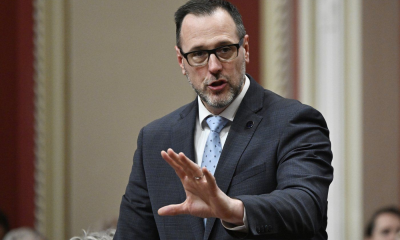#Life
The Urgent Need For Muslim Chaplaincy On Campus: An Investment In Spiritual Futures
Published

For many Muslim students, college is not just a time of academic rigor; it’s a crucible of conflicting ideologies, challenges to faith tradition, and unprecedented personal tests. And when things fall apart – when Islamophobia hits campus, when spiritual doubts creep in, when burnout begins – it often feels like there’s no safety net.
This is where Muslim chaplaincy could make all the difference.
Too often, teenage students are forced to shoulder immense emotional and spiritual labor for themselves and their communities. The demands of leadership roles in on-campus Muslim Student Associations (MSAs) can quickly escalate far past what they were initially meant to be. What would it look like if Muslim students had someone trained, trusted, and spiritually grounded to turn to? How beneficial might it be if students had someone beyond their own peers to take advice from? Someone embedded in the institution who could guide them not just in times of crisis, but through the quiet work of faith formation?
Keep supporting MuslimMatters for the sake of Allah
Alhamdulillah, we're at over 850 supporters. Help us get to 900 supporters this month. All it takes is a small gift from a reader like you to keep us going, for just $2 / month.
The Prophet (SAW) has taught us the best of deeds are those that done consistently, even if they are small. Click here to support MuslimMatters with a monthly donation of $2 per month. Set it and collect blessings from Allah (swt) for the khayr you're supporting without thinking about it.
Such an individual is a reality for far too few Muslim students in the United States. However, the presence of a Muslim chaplain in this role could revolutionize the experiences of hundreds of thousands of Muslim undergraduates across the nation, helping build a generation of highly educated students who effectively integrate their faith identity into their day-to-day lives.
This model of care and mentorship is not foreign to our tradition. Our beloved Prophet Muhammad 
“There has certainly been for you in the Messenger of Allah an excellent example for anyone whose hope is in Allah and the Last Day and [who] remembers Allah often.” [Surah Al-Ahzab: 33;21]
Emulating the Prophet
goes beyond just observing rituals of prayer and worship; it means fostering communities rooted in mercy, emotional health, and spiritual resilience. At its essence, chaplaincy carries forward this Sunnah of emotional and spiritual caregiving.
The Landscape: Muslim Students on Campus
The presence of Muslim students as an organized body on US campuses is a recent development. Although Muslim student organizations were founded as early as the 1940s, the modern MSA system began at the University of Illinois at Urbana-Champaign in 1963. Muslim chaplaincy did not exist until 30 years later when the first part-time Muslim chaplain was hired at Wellesley College. Six years later, at Georgetown, the first full-time Muslim chaplain was introduced1Husain, A. (2013, March 4). MSA national: For 50 years, ‘Students’ has been its middle name. HuffPost. https://www.huffpost.com/entry/msa-national-for-50-years_b_1940707 HuffPost. https://www.huffpost.com/entry/msa-national-for-50-years_b_1940707.

“The growth of the Muslim student population – and their increasing visibility on campus – has outpaced institutional support available to them.” [PC: Kawah Kaos Dakwah (unsplash)]
Impacts of Participation in Campus Religious Life
Though research is limited regarding Muslim university students specifically, numerous studies confirm that spiritual care and chaplaincy play a significant role in maintaining student mental health and overall well-being across Christian and interfaith communities during college years. Faith community support, in particular when directly led via chaplaincy, is integral in proactively addressing distress points for college students.
A comprehensive study by Saliba (2024) underscores the multifaceted contributions of university chaplains to mental health within the context of suicide prevention. Chaplains surveyed across international communities were reported to engage in various preventive practices, such as referring students to mental health professionals, offering community life services, providing support during exam periods, and discussing images of God or other religious figures. These activities not only address spiritual distress but also foster a sense of belonging and support among students, which are crucial factors in mitigating suicidal thoughts and behaviors2Saliba, S. M. (2024). The contributions of university chaplains, as spiritual care professionals, to suicide prevention: Results from a European expert panel. Journal of Spirituality in Mental Health, 27(2), 222-249. https://doi.org/10.1080/19349637.2024.2341079 .
Beyond addressing student distress from a spiritual perspective, participating in an active, chaplain-led faith community may indirectly alleviate academic distress as well. A 2021 study undertaken at Baylor University found that Christian students who attended on-campus church services at least once per week had higher GPAs, reported improved mental focus and academic resilience, and were less likely to engage in academic dishonesty than those who did not3Dougherty, K. D., Glanzer, P. L., Robinson, J. A., Ratchford, J. L., & Schnitker, S. A. (2021). Baylor faith and character study: Methods and preliminary findings. Christian Higher Education, 21(3), 168-190. https://doi.org/10.1080/15363759.2021.1929564. A study conducted by UCLA of over 100,000 incoming freshmen at institutions across the country found that students with high religious engagement had significantly higher rates of being able to find meaning in hardship and feeling at peace, indicating a greater ability to deal with hurdles in both their academic and personal lives4Astin, A. W., Astin, H. S., & Lindholm, J. A. (n.d.). Overall Findings. Spirituality in Higher Education. https://www.spirituality.ucla.edu/findings/. Though data is ultimately limited on the direct influences of chaplains on student wellness, it stands to reason that chaplaincy involvement generally leads to a stronger and more active on-campus faith community, which is indicated to increase student wellness across multiple sectors of life.
However, while such involvement may be a reality for Christian communities on campuses, Muslim representation is sadly lacking. As universities have expanded religious life offices to serve Christian, Jewish, and interfaith populations, Muslim students were often left without a parallel advocate or advisor. While the aforementioned chaplaincy roles established at Wellesley and Georgetown in the 1990s and early 2000s marked a turning point—not only as acknowledgments of Muslim student presence, but as acts of institutional responsibility—significant work remains to be done.
Research conducted by a chaplaincy consulting firm confirmed the presence of approximately 150 Muslim chaplains across the over 4000 colleges in America, meaning less than 4% of US college communities have access to a chaplain5Mantas, N. Z. (2023, April 7). How one Muslim chaplain created a Ramadan handbook for campuses. Interfaith America. https://www.interfaithamerica.org/article/muslim-chaplain-ramadan/. This creates a vacuum in moments where spiritual care is most needed.
The Role of a Chaplain
Such an absence of spiritual care and leadership can leave a significant void in the lives of college students as they navigate critical stages of identity development and moral alignment. Having an adequately trained and engaged spiritual leader is integral for guiding Muslim students towards healthy, deen-centered lifestyles.

“Muslim chaplaincy stands out as a vital resource that bridges faith and modern campus life.” [PC: Nathan Dumlao (unsplash)]
The nebulous boundaries defining a chaplain’s responsibilities can be both empowering and challenging. While they may have the freedom to interpret their role as they see fit, they may also become overwhelmed with burdens that are outside of their field of expertise. As Muslim chaplaincy becomes more widespread in higher education, it is crucial to establish shared guidelines about the scope and nature of their role. This includes articulating expectations for prior training, ensuring access to ongoing training and support from older chaplains, and fostering collaborative relationships across university leadership. Doing so not only helps chaplains thrive in their roles, but also ensures that Muslim students receive the holistic, faith-sensitive support they deserve during one of the most formative periods of their lives.
Conclusion: A Call to Invest in Our Students’ Spiritual Future
In an era when students face increasing pressures around identity, purpose, and belonging, the presence of a Muslim chaplain can offer much-needed spiritual grounding, guidance, and advocacy. As institutions of higher education continue to diversify and expand their understanding of student wellness, Muslim chaplaincy stands out as a vital resource that bridges faith and modern campus life.
But to fully realize the potential of this role, we can’t rely on universities alone. It will take the entire Muslim community – students, alumni, donors, community leaders, and everyday Muslims – to help build the scaffolding around chaplaincy positions and ensure Muslim students are not left spiritually adrift.
Here’s what you can do:
- Support institutions that train Muslim chaplains, such as The Islamic Seminary of America, the Association of Muslim Chaplains, and Boston Islamic Seminary. These programs ensure that chaplains are both Islamically grounded and professionally equipped for pastoral care.
- Reach out to your alma mater. Ask whether they have a Muslim chaplain on staff. If not, advocate for one. Share resources and help them understand the unique challenges Muslim students face.
- Encourage your local masjid or community center to connect with nearby campuses. Even part-time chaplaincy support—one day a week—can provide a lifeline.
- Give if you’re able. Many chaplaincy positions begin as donor-funded roles. A single scholarship, endowment, or fundraising effort can change hundreds of lives.
- Keep Muslim chaplains in your du‘ā. Their work is often quiet, emotionally demanding, and under-recognized. Pray for their strength, sincerity, and impact.
By investing in the development and sustainability of Muslim chaplaincy, we can help colleges and universities cultivate more inclusive, spiritually attentive environments. Let’s ensure that our students don’t walk their journeys alone. Let’s build a future where faith and education grow hand in hand.
Related:
– [Podcast] Hospitals And Healing: Islamic Chaplaincy | Ch. Sondos Kholaki
– From The Chaplain’s Desk – Reap The Rewards Of Being Mindful Of Allah
Keep supporting MuslimMatters for the sake of Allah
Alhamdulillah, we're at over 850 supporters. Help us get to 900 supporters this month. All it takes is a small gift from a reader like you to keep us going, for just $2 / month.
The Prophet (SAW) has taught us the best of deeds are those that done consistently, even if they are small. Click here to support MuslimMatters with a monthly donation of $2 per month. Set it and collect blessings from Allah (swt) for the khayr you're supporting without thinking about it.
Haaris Jilani is a recent graduate of Georgia Tech and is currently pursuing a Master's in Bioengineering at Imperial College London. He is passionate about weaving together religion and science, and has been named a Marshall Scholar and United Nations Millennium Fellow for his dual work in stem cell research and educational accessibility.


Starting Shaban, Train Yourself To Head Into Ramadan Without Malice

Far Away [Part 7] – Divine Wisdom

How to Make this Ramadan Epic | Shaykh Muhammad Alshareef

[Podcast] The Parts of Being an Imam They Don’t Warn You About | Sh Mohammad Elshinawy

Op-Ed: Bitterness Prolonged – A Short History Of The Somaliland Dispute

An Iqbalian Critique Of Muslim Politics Of Power: What Allamah Muhammad Iqbal’s Writings Teach Us About Political Change

Muslim Book Awards 2025: Finalists

Op-Ed: From Pakistan To Gaza – Why Senator Mushtaq Ahmad Khan Terrifies Power And Zionism

The Muslim Book Awards 2025 Winners

[Podcast] Should Muslims Ally with Conservatives or Progressives? | Imam Dawud Walid

How to Make this Ramadan Epic | Shaykh Muhammad Alshareef

[Dhul Hijjah Series] Calling Upon the Divine: The Art of Du’a (Part 1)

IOK Ramadan 2025: Four Steps | Sh Zaid Khan

IOK Ramadan 2025: Do Your Best | Sh Zaid Khan

IOK Ramadan 2025: Giving Preference to Others | Sh Zaid Khan
Trending
-
#Islam1 month ago
Restoring Balance In An Individualized Society: The Islamic Perspective on Parent-Child Relationships
-
#Life1 month ago
Faith and Algorithms: From an Ethical Framework for Islamic AI to Practical Application
-
#Current Affairs1 month ago
Quebec Introduces Bill To Ban Prayer Rooms On College Campuses
-
#Current Affairs4 weeks ago
An Iqbalian Critique Of Muslim Politics Of Power: What Allamah Muhammad Iqbal’s Writings Teach Us About Political Change










